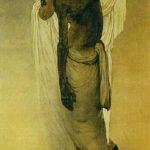
Though many close-knit groups or committed communities are not cults, plenty of groups can deteriorate socially so they have cult-like qualities. Maybe even your group.
Groups spreading throughout the spectrum of political or social affiliations have charismatic leaders with devoted and idealistic followers who are purposefully controlled. Not nice. While some affiliations exist casually (like a fervent groups of friends), others are more official and carefully structured, or even well-known. Regardless, socially destructive groups share some commonalities that may surprise you. So, what are they, and do they apply to you?
2 Tipoffs:
Destructive Cult groups have parallel traits that make them unhealthy, but also identifiable. (And yes, “Destructive Cult” are redundant terms.)
1. Employing forms of mind/behavior control (particularly for influencing decision-making)
2. Employing forms of Social Control. (Using social pressure to ensure the adoption of specific ideologies, control approved behaviors and practices; and to create isolation from others/outsiders.)
Teens and young adults can be very susceptible. Social misfits are routinely targeted for recruitment. And most potent?–The almighty “Love Bomb” which works like magic.
Our Challenge:
Make wise decisions in our social bonds, relationships, and commitments; and connect with healthy and gracious communities. Reject controlling leaders and the lure of co-dependent and enmeshed relationships. Instead, nurture Interdependence and free-thinking. We should watch for signs of social decay. Human nature unabated lusts for power. If we locate damaging qualities, we should address them prudently and graciously. And, we should part ways if these qualities persist, or worsen.
Myth: Cults are religious.
Cult groups are not limited to the religious/belief variety. On the contrary, plenty are political groups; social groups; activism groups, market-driven/sales organizations; and wellness/self-help groups. And of course, they don’t think they are cults, let alone admit they are. You have to figure it out for yourself. Once one is emotionally, socially, or financially dependent, this gets quite difficult. Or should I say diffiCULT? (Gosh, sorry. It would appear I have a pun disorder.)
Steven Hassan (one of America’s leading experts on cults), says:
”Nobody sets out to join a cult. No one knowingly wants to give up their life, their needs, their goals. ”They come to believe they’re improving themselves and improving the world, and it is then they are led into a psychological trap. It could happen to anybody.”
Hassan, who was once a Moonie cult member, says 4 elements of control are used in cult type groups (The BITE model):
• Behavior Control
• Information Control
• Thought Control
• Emotional Control
He lists 26 specific characteristics, within these 4 headings, at his resource site is here. It’s very informative and worth the 2-3 minute read.
Have you been part of a group with some “BITE”?
I have (though it was long ago, thankfully).
And this nifty site (SOS Soberity) shares 5 traits of Cult Leaders; and they even have a helpful questionnaire to figure out if you (or someone you know), might be in a cult. It’s practically fun…okay, it’s mildly amusing…well, if it all wasn’t so malicious and creepy in the first place, that is.
Here’s a partial quote from them:
Have you seen these qualities for yourself, or seen them nearby?
If so, Please, share your stories.
(Remember: Responding anonymously is an available option in the comments section.)
-Thank you! oxo Lisa
PS
ugh. This post was really serious, so to avoid this being the nadir of your day (especially if you just realized that you’re sort of in a cult, which is typically a huge downer) I pose this bitty “challenge”:
If you were a cult leader, what would be the coolest cult outfit for you and your members? The traditional death cult jumpsuit? Homemade head coverings and sandals? Or maybe something more unique?
(Please note if you’d like to wear something fancier as the leader, because—obviously, in this case– you have unmitigated control.) Are there any secret cultish fashionistas among us? Oh, and promise me you won’t get too excited by this and become a cult leader, okay? Resist the temptation. (If you are already a cult leader, just leave your social security number and mother’s maiden name.)





